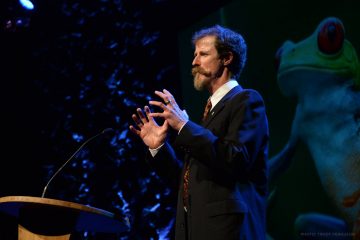A very warm welcome to David Boyd, who will be joining IRES as a new Associate Professor starting July 1, 2017!
To learn more about his profile and research interests, please visit his bio here.
David Boyd will be teaching a course in the upcoming academic year (GPP 507). For your information, below is an abstract for the course.
GPP 507
Environmental Law and Policy
Abstract:
This course will provide a practical and lively overview of how environmental law and policy is created, implemented, and enforced at the international, national, and sub-national levels. Students will learn about the evolution of environmental law and policy, legal institutions, and the major areas of law that relate to ecological sustainability (e.g. constitutional law, international law, municipal law, human rights, Indigenous law). The course will examine and critique the substantive laws, principles, and policies dealing with specific issues such as pollution, toxic substances, water, climate change, environmental assessment, and biological diversity. A central theme will be the differences between law and policy on paper and in practice. Students will be expected to engage in critical thinking about the effectiveness, efficiency, and equity of laws, policies, and institutions related to environmental protection, while considering the broader ecological, political, social, and economic context.
After actively participating in this course, students will be able to:
- articulate the role of laws, policies, actors, and institutions in addressing environmental problems;
- think critically about ways in which environmental law and policy can be used to: solve environmental problems at the least possible cost to society while concurrently alleviating environmental injustices and promoting human rights; identify the barriers that prevent environmental law and policy from achieving sustainable outcomes;
- conduct comparative analyses of environmental laws from countries all over the world; and
- participate more effectively in environmental policy-making and decision-making.
